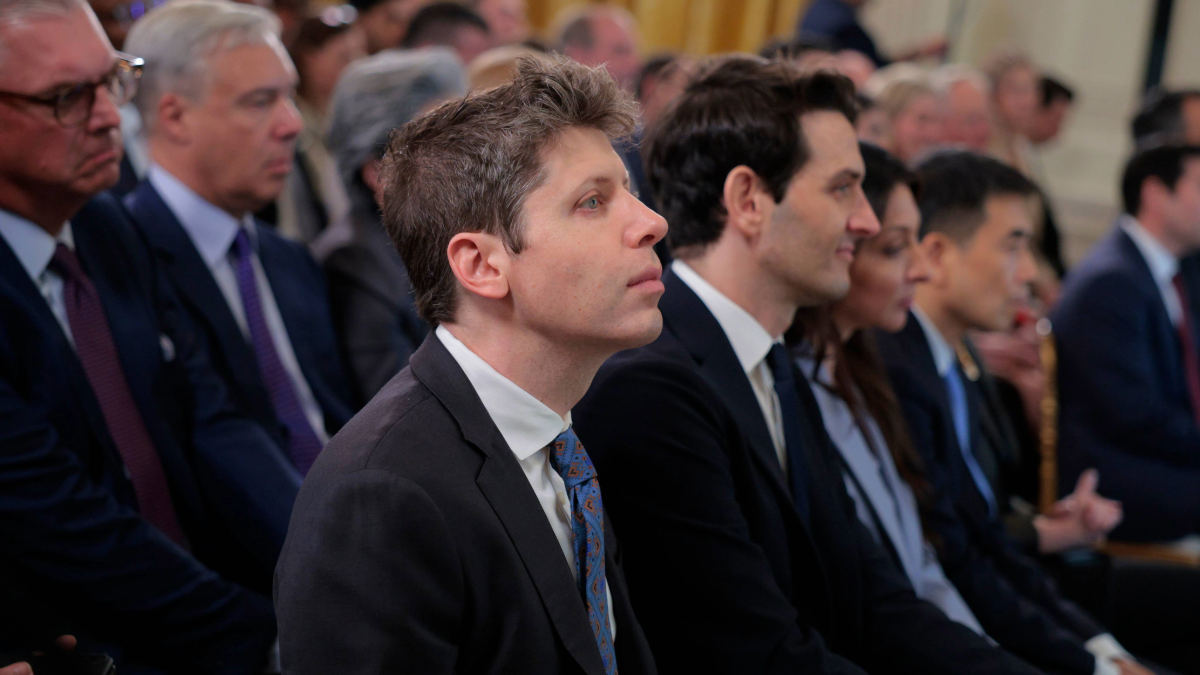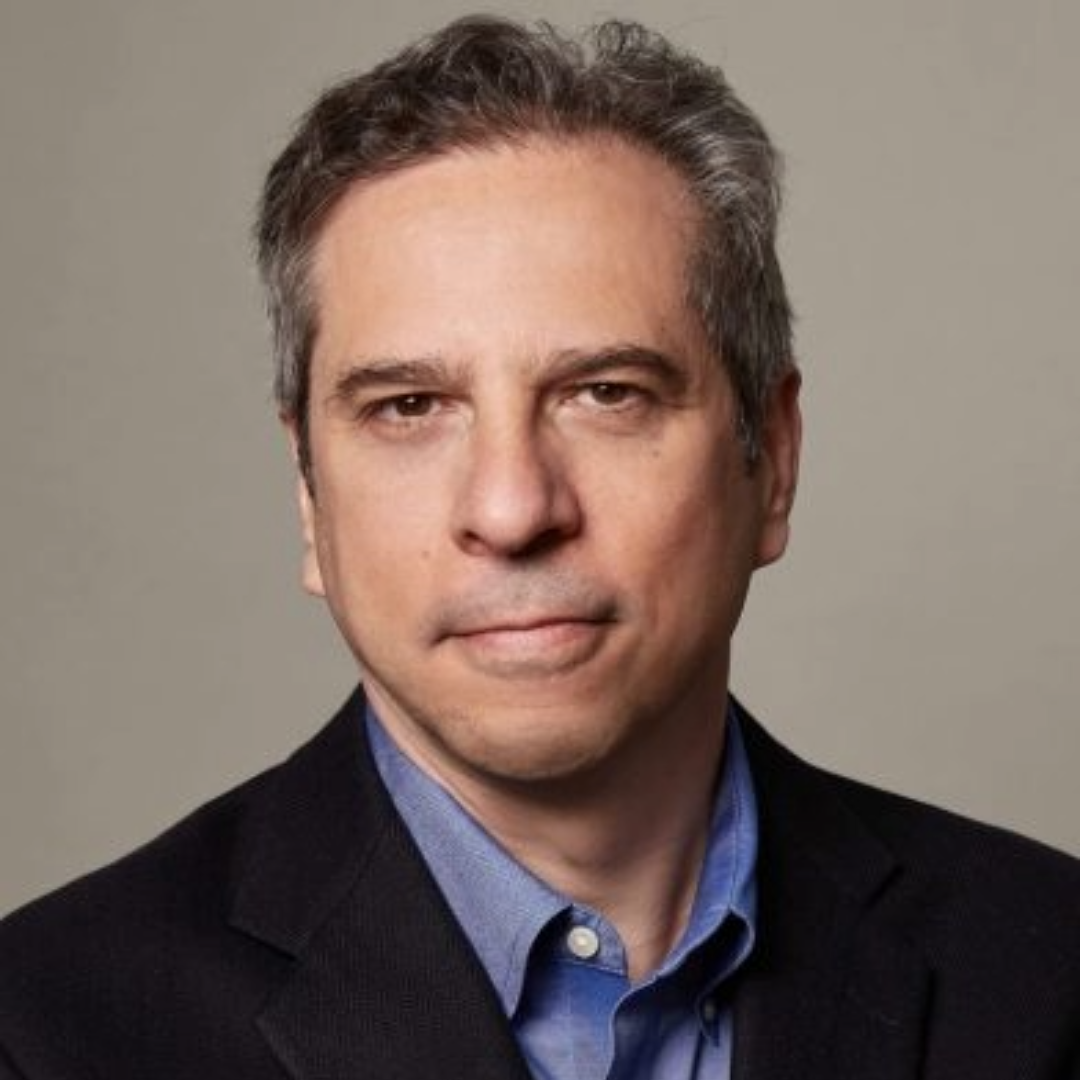How to Solve AI’s Community News Problem
Steven Waldman / Oct 23, 2025It serves the financial interest of AI companies and the mission of the OpenAI nonprofit to invest significantly in reviving local news, writes Rebuild Local News president Steven Waldman.

WASHINGTON, DC — SEPTEMBER 4, 2025: OpenAI CEO Sam Altman attends a meeting of the White House Task Force on Artificial Intelligence Education in the East Room of the White House. (Photo by Chip Somodevilla/Getty Images)
Two reports came out this week that ought to make tech leaders think very differently about how AI assistants deal with news.
The first study, by the European Broadcasting Union, reported that ChatGPT was confidently reporting that Pope Francis was still the Pontiff, months after he died – and that 20% of answers by AI assistants to news-related questions had “major accuracy issues, including hallucinated details and outdated information.”
To be fair, tech leaders have always said accuracy will improve as systems gobble up all the reliable news out there. And the study has its critics, but the findings are nevertheless concerning.
Which leads us to the second report, the State of Local News 2025 by the Medill Journalism School at Northwestern University – which found that reliable local news may be going the way of the manual typewriter. Some 3,500 newspapers have closed since 2005, almost 40 percent of the total, they found. There’s also been a 75 percent drop in the number of journalists. Even in areas with local news outlets, they are often “ghost newspapers” providing minimal or superficial local coverage.
In other words, while AI companies may indeed be able to fix the wrong-Pope problem (and other facts involving national or global matters) by changing their code, local news presents an entirely different problem. In tech terms, this represents rampant data poverty.
They will need to do more than evolve their AI systems. They’ll need to tackle the core problem – directly investing in the revival of local news. It’s in the financial interest of the companies and the mission-interest of the OpenAI nonprofit.
In response to a prompt from me, ChatGPT itself laid out a thorough case for why this is going to seriously complicate the companies' efforts to provide useful local news or information. “The decline of local news and local journalists makes it harder for AI to provide accurate, trustworthy search results about local matters,” it offered.
It makes sense. Less local news leads to AI relying more on user-generated content, social platforms, press releases and aggregation sites that are more likely to have misinformation. Gaps would be particularly notable when it comes to new information, and news where the official record might not tell the full story or where the only information may be rumors on Nextdoor.
We can already see the epistemic threat emerging. Various studies found that AI assistants often flubbed local elections. including about how to register, where to vote, the positions of candidates, and how disabled people could participate. In a study of elections in Switzerland and Germany, one third of answers included “wrong election dates, outdated candidates, or even invented controversies concerning candidates. Chatbots are generally not well suited to adapt to the local context or language.” One local mayor in Australia sued OpenAI when ChatGPT declared, falsely, that he had been convicted of bribery.
In September, the fact-checking and data analytics firm NewsGuard reported that the error rate for AI search has actually gone up in the past year, in part because chatbots were more likely to provide answers, even if the information quality was low. As a result, AI regularly picked up material from fake local sites created by Russia:
The leading chatbots regularly repeat fabricated narratives pushed by state-affiliated propaganda networks disguised as legitimate local news. In July 2024, for example, NewsGuard found that 32 percent of the time, the 10 leading models spread foreign propaganda narratives linked to the Russian influence operation Storm-1516, citing Kremlin propagandist John Mark Dougan’s network of fake local news sites.
So clearly, the persistence of the local news crisis will undermine the success of AI. Conversely, a stronger community news system can be good for the bottom line of AI companies. AI firms would get greater user loyalty and engagement, while having to waste less money filtering out bad information, or defending lawsuits.
Having robust local news systems could enable AI companies (hopefully in collaboration with the outlets) to create even better services and increase their consumer usage. The news outlets and/or AI (or joint projects) could provide rapid translation of local journalism into multiple languages, coverage of many more public meetings (using automatic transcription) or help news outlets to gauge the most pressing problems of readers in real time.
Hilariously – and accurately – ChatGPT added another reason they should invest in local news: to “curry favor with policymakers focused on information ecosystems.” I did not have “ChatGPT eliminates lobbyist jobs in the government relations office” on my bingo card.
All in all, the case is strong: AI companies should not only generously compensate local news outlets for material they use, they should invest even larger amounts in the wholesale revival of the local news industry. It would take just a few billion dollars a year to get community news on its feet enough to provide sufficient local news to fuel AI.
As strong as that local-news-investment thesis is for commercial AI ventures, it’s downright inspiring when it comes to OpenAI-the-nonprofit, which may soon become the largest philanthropy in the world. As part of OpenAI’s conversion from ostensibly nonprofit to for-profit, it plans to give its nonprofit arm a $100 billion stake in the commercial entity.
The OpenAI nonprofit mission is to ensure that AI “benefits all humanity.” With a strong local news system, AI is far more likely to be helpful to humanity; without it, it’s more likely to spread misinformation and fuel polarization.
An advisory commission established by OpenAI to help guide the evolution of the nonprofit called on it to “Construct institutions that prioritize civic engagement,” “invest in combating misinformation” and support “local organizations bridging trust” and “creative civic media.” Sounds like community news to me!
After all, as professors Danny Hayes and Jennifer Lawless put it, “The most dramatic change in civic life that US communities have experienced in the last 20 years” is “the decimation of the local news media.”
Numerous studies have shown that less local news leads to more polarization, corruption and division, and less volunteering, split-ticket voting and knowledge of civic affairs.
OpenAI has said that its nonprofit will hold about $100 billion in stock in the for-profit company. If just 10 percent of that were applied to this massive social problem at the intersection of information and technology, it could create a $10 billion endowment that would produce $450 million per year, roughly equivalent to the entire annual budget of the soon to be defunct Corporation for Public Broadcasting, in one fell swoop.
We can argue about how that money should be distributed. Our preference is for a subsidy for newsrooms for each local reporter they retain or hire (much like the local report employment tax credit experiment in Illinois, and the refundable tax credit passed by the US House of Representatives in 2022. There are other ideas, too: a “local news bank” to help with revenue growth, subsidies for consumers who support local news, and fellowships for journalists who go to rural newsrooms.
The local news crisis has massive repercussions for society. Fortunately, in this case it will also hit the bottom line of the fastest growing industry – which means that maybe this time the self interest of tech firms will align with the needs of community and democracy.
Authors
